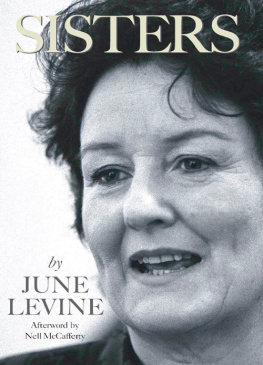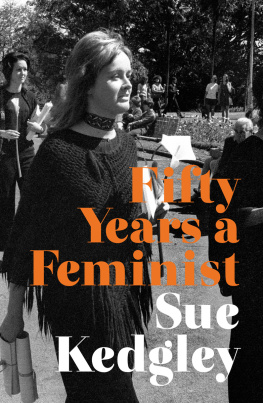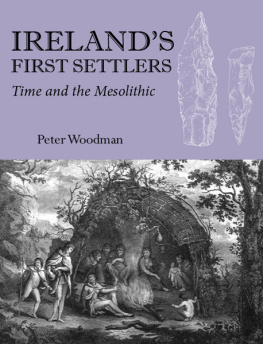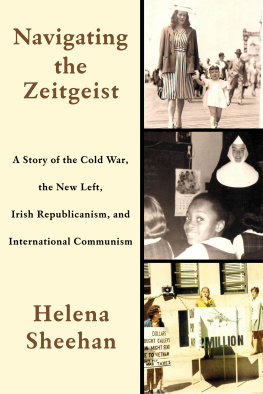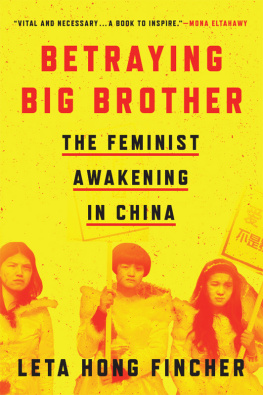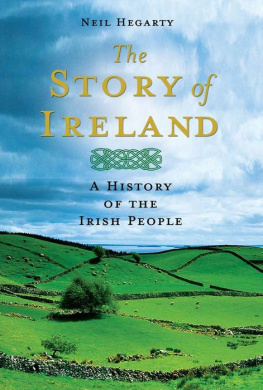June levine - Sisters: The Personal Story of an Irish Feminist
Here you can read online June levine - Sisters: The Personal Story of an Irish Feminist full text of the book (entire story) in english for free. Download pdf and epub, get meaning, cover and reviews about this ebook. year: 2009, publisher: Cork University Press, genre: Detective and thriller. Description of the work, (preface) as well as reviews are available. Best literature library LitArk.com created for fans of good reading and offers a wide selection of genres:
Romance novel
Science fiction
Adventure
Detective
Science
History
Home and family
Prose
Art
Politics
Computer
Non-fiction
Religion
Business
Children
Humor
Choose a favorite category and find really read worthwhile books. Enjoy immersion in the world of imagination, feel the emotions of the characters or learn something new for yourself, make an fascinating discovery.
- Book:Sisters: The Personal Story of an Irish Feminist
- Author:
- Publisher:Cork University Press
- Genre:
- Year:2009
- Rating:3 / 5
- Favourites:Add to favourites
- Your mark:
- 60
- 1
- 2
- 3
- 4
- 5
Sisters: The Personal Story of an Irish Feminist: summary, description and annotation
We offer to read an annotation, description, summary or preface (depends on what the author of the book "Sisters: The Personal Story of an Irish Feminist" wrote himself). If you haven't found the necessary information about the book — write in the comments, we will try to find it.
Sisters is a revealing, intensely readable book by one of Irelands finest feminist writers. It contains a major assessment of the womens movement in Ireland, but first and foremost it tells the story of one womans search for personal fulfilment.
Sisters: The Personal Story of an Irish Feminist — read online for free the complete book (whole text) full work
Below is the text of the book, divided by pages. System saving the place of the last page read, allows you to conveniently read the book "Sisters: The Personal Story of an Irish Feminist" online for free, without having to search again every time where you left off. Put a bookmark, and you can go to the page where you finished reading at any time.
Font size:
Interval:
Bookmark:

JUNE LEVINE

Published in 2009 by Attic Press
Attic Press is an imprint of Cork University Press,
Youngline Industrial Estate
Pouladuff Road, Togher
Cork, Ireland
Published in 2009 by Attic Press
Attic Press is an imprint of Cork University Press,
Youngline Industrial Estate
Pouladuff Road, Togher
Cork, Ireland
First published in Ireland by
Ward River Press Ltd, 1982
The estate of June Levine, 2009
Foreword, Nell McCafferty, 2009
All rights reserved. No part of this book may be reprinted
or reproduced or utilized in any electronic, mechanical or other
means, now known or hereafter invented, including photocopying and
recording or otherwise, without either the prior written permission
of the Publishers or a licence permitting restricted copying in
Ireland issued by the Irish Copyright Licensing Agency Ltd,
The Irish Writers Centre, 25 Denzille Lane, Dublin 2.
British Library Cataloguing in Publication Data
Levine, June.
Sisters : the personal story of an Irish feminist.
1. Levine, June. 2. Feminists--Ireland--Biography.
3. Feminism --Ireland--History--20th century.
I. Title
305.4209415-dc22
ISBN13: 9781855942110
Printed by Athenaeum Press, UK
Typeset by Tower Books, Ballincollig, Co. Cork
www.corkuniversitypress.com
I wish to thank, most warmly, those who helped me in the writing of this book, whether with their memories, interviews or encouragement. Thanks to Mary Sheerin for turning on my memory, to Mary Kenny for lending me her scrapbook, to Risn Conroy for letting me plough through the files of Irish Feminist Information and to Pat Brennan for her article about the Irish Womens Movement in Magill. My thanks to Clare Boylan, Mirn Johnston, Margaret Gaj, Nell McCafferty, Nuala Fennell TD, Mary Maher, Rosita Sweetman, Colette ONeill, Janet Martin, Maura ODea, Liz McWeeney, Celine Henry and Bairbre Madden Reddy. Thanks to Andrew Whittaker, Vincent Kenny, Kevin Clear and editor Cormac Cuilleanin. A special thanks to Ivor Browne and ultimately to my beloved Babuji. Apologies to those people who should have been mentioned in the text and arent; some names, however, have been altered or concealed to avoid embarrassment to individuals.
June Levine, 1982
O ut of the South circular road she came, a most improbable citizen outlaw. Down the grand canal she sailed, a designer-label galleon, in lipstick and high heels. Up the wooden staircase to Margaret Gajs restaurant she walked, in 1970, to join the other eleven founder members of the Irish womens Liberation Movement. When the law is unjust, the place of every just person is outside those laws, and June Levine placed herself immediately outside such laws as those which made the use of contraception illegal in Ireland, punishable by penal servitude.
She faced jail sentence and death threats, troubled the waters of state and church, then brought friends home for dinner, a bubble bath and breakfast in a bed of fresh linen.
Therell be guards on duty, June, you might have to run. Should you be wearing that kind of gear?
Should, shouldnt... she gave her trademark Jewish shrug.
June was the first of us to die, in 2008, aged seventy-five.
She had risked her own murder when she gave shelter to Lyn Madden. Lyn testified against the pimp for whom she worked, John Cullen, who had burned three women to death in the house of a former prostitute, hoping thereby to silence all who worked for him. There was a 24-hour police guard on Junes house during the year that she gave sanctuary to Lyn.
She defied the death threats and wrote Lyn, the definitive story of murder, rape and prostitution in Ireland.
She never stopped working to achieve Jerushalayim Shel zahav, the golden city on the hill. We who survive are not there yet. Next year in Jerusalem, June. For you, it is now the Gaelic lament:
S mo laoch, mo ghile mear.
Farewell brightness. Farewell, thou good and faithful citizen outlaw. Goodnight, sister dear.
***
Her first book, Sisters (1982), an account of the founding years and founders of the movement, is a seminal work. June was the first of us, in contemporary times, to place value on the written word, which is why she was selected for the honour of contributing editor, in 2002, to the Field Day Anthologys section on modern feminism.
Though much has changed, it is useful to go back to 1971, to see how utterly so. That was when we took the Contraceptive Train to Belfast. We could not obtain every device that we wished to illegally import back to Dublin crucially we could not get the contraceptive pill. We bought aspirin instead, to declare to the customs officers in Dublin, on the reasonable assumption that those men in uniform would not be able to tell the difference, never having themselves seen a contraceptive pill. We were right. They mistakenly identified the aspirin as contraband and tried and failed to seize them.
Contraceptives are sold today on supermarket shelves in Ireland. Modern safe sex ads on television show a mother calling upstairs to her daughter, who is in bed with a male partner, Have you taken your pill? The government is currently devising legislation that will recognise same-sex civil union. The Dil has agreed to make cervical-cancer vaccine available, free of charge, to girls of twelve, when the economy picks up as all too often, females must wait.
Far too many advances have been made slowly, agonisingly, forged on the anvil of individually punished females, whose names toll down the doleful decades that came after the visit of Pope John Paul to Ireland in 1979. The joy that greeted that decent mans arrival airports were closed, ports shut down, skies were cleared for his arrival and a million people gave him a vast hosting in Phoenix Park was viciously parleyed after his departure into a crusade against abortion. The country was torn apart in uncivil war between 1981 and 1983, which saw three governments come and go before a referendum was passed which conferred constitutional protection on the foetus and gave it equal status with the host mother. Catholic Bishop Cassidy declared that the most dangerous place in the world is in a womans womb.
One only has to say Joanne Hayes, Ann Lovett and Eileen Flynn to invoke flashbacks of their crucifixion by state and church. In 1982, schoolteacher Eileen Flynn was sacked from a convent school because the baby to which she gave birth was deemed incontrovertible evidence of her contravention of the Catholic ethos. She was not then married to the man she loved because divorce was not available to him.
In 1984, fifteen-year-old Anne Lovett died in hiding, alone, as did her baby, while giving birth on the stony ground of a Marian shrine in Granard. She was not married.
Joanne Hayes, a single mother of one, who gave birth in a field to another baby which died immediately, was wrongfully accused of killing both it and a second baby whose corpse was found a hundred miles away. She was hauled before the infamous Tribunal of Inquiry into the Kerry Babies case.
Their ordeals made Junes account of vibrant sisterhood in the seventies seem like golden years. Worse was to follow.
The X Case which erupted in 1992 brought the shamed country to its reluctant senses. A fourteen-year-old suicidal girl, who had been raped by a neighbour, was brought to England by her parents for an abortion. They hoped to use the DNA of the aborted foetus as evidence in court. The Irish Attorney General ordered them home they obeyed and the child was interned in the country while the Supreme Court hastily considered the matter. It upheld the right to abortion where there was a threat to the life, as distinct to the health, of a female. A subsequent referendum conferred on women the right to information about abortion within Ireland, and the right to travel abroad for one, and the limited right to an abortion in Ireland if the expectant mother can indeed prove that she is suicidal. The threat to a mothers mental health is still considered insufficient grounds for termination, even when she is carrying an unborn baby which has such physical defects that it will die shortly after birth.
Font size:
Interval:
Bookmark:
Similar books «Sisters: The Personal Story of an Irish Feminist»
Look at similar books to Sisters: The Personal Story of an Irish Feminist. We have selected literature similar in name and meaning in the hope of providing readers with more options to find new, interesting, not yet read works.
Discussion, reviews of the book Sisters: The Personal Story of an Irish Feminist and just readers' own opinions. Leave your comments, write what you think about the work, its meaning or the main characters. Specify what exactly you liked and what you didn't like, and why you think so.

